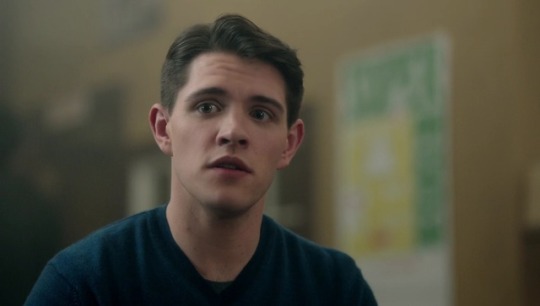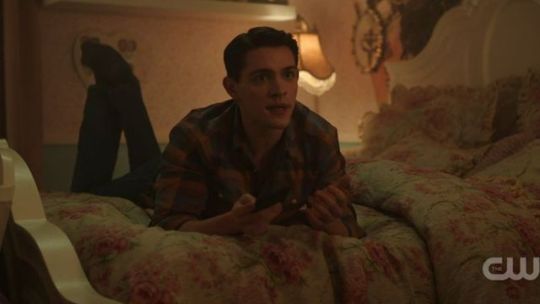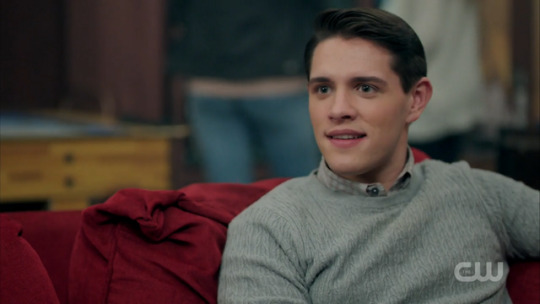Text
Fun Fact: You can (and should) always include well written LGBT+ people in fiction, no matter what the setting is
Because, amazingly, LGBT+ people have always existed, everywhere, forever. We have always been here.
14K notes
·
View notes
Note
Hi! I was wondering if you knew of any wlw youtubers that either vlogs about books or does favs videos with book recoomendations?
Oh yeah, I do know a few!
Danika Leigh Ellis (@danikasapphistry & @fuckyeahlesbianliterature)
ProblemsofaBookNerd (@problemsofabooknerd)
perpetualpages (@braincages )
teaandbookbindings (@tealeavesandbookbindings)
woolfswhistle
Please feel free to add on if you know any more! The booktube community seriously lacks when it comes to wlw literature.
139 notes
·
View notes
Photo



Farming, But Like...Really Gay If You Want It To Be.
Bold of you to assume that my official review of Stardew Valley was going to be “Hey! You can be gay!” I mean, I say that a lot but there’s a bit more to it. Warning for spoilers ahead and if you’d like to see me talk about any other lgbt media, head to my ask box!
This game is hard. Not playability wise, of course. It’s actually very calming and simple, taking very little gaming skill. As a fan of Harvest Moon while I was growing up, I wasn’t expecting much when it came to the family aspect. This comparison to Harvest Moon: Another Wonderful Life is important, mostly due to the fact that Harvest Moon is one of the biggest farming game franchises. I walked into Stardew Valley with low expectations when it came to the relationships, which were always a background thing to me. A way to continue playing the game.
I’ve gotten that dreaded game over in Harvest Moon from refusing the random marriage proposal you get if you choose not to romance anybody, and of course, I owned the game where you were a girl. Because I was a girl. So you could only marry men, which none seemed too appealing. There were only THREE options, and they were as follows:
The responsible, grumpy one with a terminal illness
The unemployed irresponsible one who has no work ethic
The laid back hippy who works when he needs to
The aspect of competition among female villagers and reducing all of the bachelors in the game down to three extremes makes it far less enjoyable. Women in the game like Lumina and Celia are far more enjoyable, but this means nothing to anyone but me I suppose.
So...Stardew Valley.
Stardew Valley has a leg up over it’s predecessors right away. First of all, even if you couldn’t marry the same sex, you have six options. And the go on ahead and add another six, because you can totally marry the same sex.
Are you a space loving femme? Maru is the one for you! Are you a gay man who loves an artsy type? Elliot!
There’s literally at least one character for everyone, and here’s the other thing: they evolve. Harvest Moon’s characters fall flat, but Stardew Valley’s do not. In my first run through, I chose Maru. After attempting to befriend other villagers, I thought about starting another save file just to romance...Sebastian. Sebastian appears to be a greasy boy who hangs out on his computer all day, but he is actually a freelance programmer.
That’s besides the point. So what’s the system? In Stardew Valley, you give NPC’s gifts to level up your friendship with them. They all like different things. In certain special events, you can increase friendship significantly like with the luau. So now that you know that, here’s the reason why Stardew Valley not only gave you the option to be gay, but made sure to be inclusive while they were doing it. This list includes the events that change if you choose to pursue a same sex relationship. Warning for most of them being ten heart events.
Leah’s Ten Heart Event
Leah’s ten heart event is not something you will notice unless you get there in both a male run through and a female runthough. Leahs’ ex will come out of the bushes during a picnic, and say something about supporting Leah’s art. Either you or Leah will punch Kel, the ex. Apparently this ex never supported her art until she was successful.
Alex. Just Alex.
Alex’s dialogue is definitely different if you’re a guy. In fact, he almost has a whole separate story arc about him battling his internalized homophobia. At Level 6, he will say your relationship is wrong. However, by heart level ten he has come to terms with his sexuality. If you get a high enough level with George, his grandfather, you will get some pretty cute dialogue (which is pictured above). It’s one of the few instances where someone will recognize your relationship besides your significant other.
Abigail’s Ten Heart Event
During the ten heart event, if you are a guy things are pretty by the by. She says she likes you more as a friend. BUT if you’re a girl, she has different dialogue much like Alex. She says that she didn’t know she liked girls until you came along.
There Are Some Critics Though, Although I Disagree
For some reason, people think it’s a terrible idea that you can romance any gender regardless of whatever your gender is. Critics of the game’s relationship game says it falls flat, complaining that since any romance is possible, there’s no challenge.
However, I don’t think the relationship aspect is supposed to be challenging. And if you only play one save file, I don’t think that aspect would be all that important. Most players set their eyes on a few. Of course, this is a lot of ifs. I will not say the system is perfect, but that doesn’t make the inclusion disingenuous.
Overall, even with the systems overall flaws, Stardew Valley does more than just give you the option to be gay. It changes your experience too, which I think is fundamental in providing that choice.
#stardew valley#lgbt media#lgbt gaming#so yeah that's a thing#harvest moon#im tagging it that because there's a long bit in there about that so.
22 notes
·
View notes
Photo


“I think women writing in the 50s and 60s for paperback houses, in particular, were often constrained by the kind of formula that the publisher imposed on them. There was some kind of retribution that was essential at the end so that you could let them have a little fun in the mean time. And presumably, entertain the reader. But it was not to go unpunished. So at the end of a story like that, one of the women or both had to die or be essentially shipped out of the country, or undergo some calamity that would break her heart or break her spirit or end her life.”
Forbidden Love: The Unashamed Stories of Lesbian Lives (1992) Directed by Lynne Fernie and Aerlyn Weissman
3 notes
·
View notes
Photo



We Need To Talk About Kevin...No. Kevin Keller.
Strap in. Buckle up. We’ve going to take an excruciating dive into Kevin Keller during season one of Riverdale with a quick glance at his future appearances. Trust me. It was a miracle that I got through season one.
Between watching Food Network and trying to get a space-loving, robot-building wife on Stardew Valley, I haven’t been around a lot for my sister to tell me how much she loves Riverdale. Riverdale! I usually just roll my eyes as she gushes about how great it is, how it’s diverse, and how there is a couple that’s not straight. My thirteen year old sister is in her formative years and taking some of her first steps into the LGBT community. Riverdale should not be her first impression of LGBT individuals in media, and while there’s a lot to unpack about the show, I’m hoping I can explain why to her (and everyone else) with one titular character. Kevin Keller.
Origins
To understand Kevin Keller in Riverdale, we must look at Kevin Keller in Archie Comics. I know, it’s tiring. Everyone points out the characterization in Riverdale and how it’s so different from the comics. Changing the characters is no big deal, when it benefits the plot of the adaptation, and I won’t touch on that again. However, to understand the outrage that surrounds Kevin Keller, we need to understand his source material.
Kevin Keller was introduced to Archie Comics in Veronica #202 in September of 2010. He is the first gay character to appear in Archie Comics, so you know, he’s a pretty big deal. His reception was spectacular, his debut issue required a reprint and it was praised by the LGBT community.
As a character in the comic, Kevin was dynamic. He was a skilled archer who was trained by his father, he becomes school president, and he has aspirations to join the military one day. He’s shown as an adult in later comics running for office and getting married to Clay Walker.
So Where Did He Go Wrong?
Kevin appears within the first few minutes of the pilot, helping Betty prepare for a date with Archie, who he proclaims is “hot”. No one can blame him for simply appreciating a straight character, since he seems to be the only gay guy in this godforsaken town.
Due to this, he is a caricature. A gay best friend. He lacks dimension. Being gay seems to be his only personality trait. He is more concerned with explaining why he was at the river with a boy than he is traumatized by finding the body of Jason Blossom. He is given plenty of opportunities to react to this in a different way and grow as a character, but instead he is stagnant.
Every conflict he could possibly experience is instead replaced with the fact that he is gay. He fixates on the chance that Archie could possibly be gay, we feel bad for him when he doesn’t have anyone to cuddle with at the drive-in. Even his boyfriend, Joaquin, in season one is simply planted there to keep tabs on him.
Kevin was originally brought into Archie Comics because the creators knew Riverdale was “a safe place for everyone” and people from the LGBT community should be included. Riverdale from the CW makes it dangerous, but Kevin doesn’t seem to concerned with that in the second season. He is constantly hooking up with guys, which we’ll touch base on that later, and when Betty calls him out on it, he is defensive. Oh no! Another conflict in which Kevin’s only motive is hooking up with other men.
He Had Potential
Kevin Keller had fans. Not Riverdale Kevin, but Archie Comics Kevin. He had his own series, Archie Andrews (spoiler) dies in one of the comics to save him, and he is portrayed as a real person with dynamic interests. He was added to the universe not so Archie Comics could be considered diverse, but inclusive. The comics gave him a safe place to thrive, deal with real high school adversity (in his standalone series), and grow up.
Kevin in CW’s interpretation has been reduced to practically nothing. He is there to add diversity, not to be included. In fact, Betty and Veronica are his only two friends out of the main cast. Jughead considers him an intruder at a celebration, and says he isn’t really part of the group.
Instead he is arm candy, the gay best friend for two of the main characters. He loves shoes (but just because he says this before kicking ass at a construction job doesn’t give the show a pass). He’s shown as promiscuous and reckless, and I personally think that gay characters have been presented like this far too often. Why, on the other hand, is for a different time.
I’m Going To Stop Being A Dead Horse
Kevin Keller falls under a number of tropes, including but not limited to:
Gaynst (everything is miserable because I am gay)
Promiscuous Gay
Gay Best Friend
Club Kid (an accumulation of gay stereotypes)
And I could go on for Riverdale as a whole, since many tropes apply to a group of people or a plot arc (which I don’t believe Kevin has). The point is: Kevin is gay. That’s the only damn point this whole show makes. He’s nothing but a list of stereotypes that only get contradicted once.
It was overall disappointing, considering he could have been so much more. That being said, so could every other Riverdale character. It’s a shame that such a revolutionary character in the comics is reduced down to nothing for...what? Shock value? Being able to say they had a gay character after all that queerbaiting in the promotional material? I can’t think of any other reason, but maybe I’m overthinking it.
It’s just bad writing.
31 notes
·
View notes
Text
JUNE 27: Before Stonewall is released (1985)
On this day in 1985, the documentary Before Stonewall was released. A companion of the book of the same name, Before Stonewall chronicles LGBT life and culture in the United States before the Stonewall Riots and the following explosion of the LGBT Rights Movement.

The original cover art was replaced with an updated design for the 25th anniversary edition of the film (x).
Quite literally, before Stonewall, there was the Compton’s Cafeteria Riot, Julius’s Sip-In, and so many more demonstrations and quiet acts of rebellion that set the stage for the civil rights movements of the 1970s and onward. Directed by John Scagliotti, Greta Schiller and Robert Rosenberg, the documentary’s purpose is to shed light on the lesser-known events in LGBT history while also just simply showing how gay, bi, and trans people lived their lives in the pre-Stonewall ages. Written by Andrea Weiss and Greta Schiller, the book Before Stonewall: The Making of a Gay and Lesbian Community was published in 1988 as a companion to the film. Both works combine archived film footage and illustrations of an underground gay culture with interviews of the people who actually lived in and helped create that culture. Some of those interviewed are lesbian icons Audre Lorde, Anne Bannon, Barbara Gittings, and Lisa Ben.

The lesbian activists and artists interviewed in the documentary include Audre Lorde, Lisa Anne Bannon, Barbara Gittings, and Lisa Ben (x).
In their interviews, the women also uncover a distinct lesbian culture and history from the pre-Stonewall days that is even more rarely-talked about than the pre-Stonewall gay culture. From the famous drag king of the 1920s, Gladys Bentley, to Mabel Hampton and her lesbian activist work during the Harlem Renaissance; to the lesbian bar The Black Cat that originally opened in 1906, and The Beebo Brinker Chronicles and other lesbian pulp fiction novels, Before Stonewall acts as a time capsule for the LGBT kids of today to not only learn about their history from the early 20th century, but to also see how we were talking about that history before the AIDS crisis of the 1980s took its toll.
youtube
Before Stonewall went on to make waves at several film festivals and even won two Emmy Awards in 1987 for Best Historical/Cultural Program and Best Research. In 1999, a sequel titled After Stonewall was released that covers the thirty years of LGBT life and culture since the Stonewall Riots.
-LC
901 notes
·
View notes
Photo



Pride (2014) is a film we slept on.
It’s not really a stretch to say that tumblr has been a hub for exchanging the latest opinions on strides in films. However, I have been on this hellsite since 2011 and did not hear about this film once. Not once. I discovered it in film class this past semester as an alternate assignment because the film that was being viewed was incredibly violent.
That being said, there’s little to no violence. In fact, I’ve gone over the Parent’s Guide on IMDb plenty of times, and I would say that most of their warnings seem to be a stretch. “A woman launches herself in anger at another woman, but is restrained.”? One of the main characters is attacked offscreen, but that is about as far as it goes.
There is no “Bury Your Gays” trope present in this film.
It’s a celebration, a party, a film about coming together to face adversity. It does a beautiful job of showing how to different movements can (and have) coincided with one another. The homophobia present in the film is a piece of the plot, but not the whole plot itself. It doesn’t rely on gay stereotypes.
And most importantly, especially after seeing the recent wave on LGBT films, does not glorify an underage relationship.
Our main character, Jonathan Bromley, is fictional unlike many of the other activists that are featured in the film (since this story is based on true events.) We see him adventure into a Pride parade on his 20th, accidentally getting roped into joining. When he discovers he enjoys it, Steph (played by Faye Marsay) asks him how old he is. When he tells her the truth, she says that he is still a minor. She makes it known that no one is going to touch him with a ten foot pole.
I won’t drone on with a synopsis of the events in the film, and I highly encourage you to watch it if you have the time. I’ll have more to say on this film in the future, but for now I recommend watching it.
78 notes
·
View notes